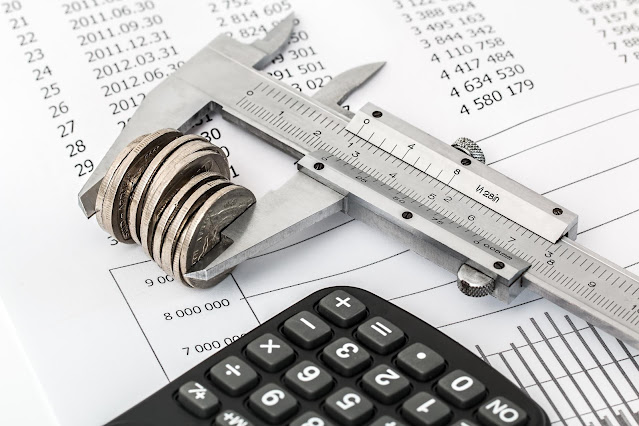Practical and Doable Family Budgeting Tips
August 05, 2022The key ingredients to a healthy financial situation are buying the right insurance for your family's needs, making sure that you have a will that protects your family, contributing to savings, and most of all, setting up a budget and sticking to it. Earning more money will only brighten your financial outlook and will be put to waste if you don't know how to spend and save your money wisely.
Establishing a family budget is challenging but doable
✅What you spend depends on many factors—your current expenses; savings reserved for other expenses such as car purchase, college education, health maintenance organization (HMO) health insurance premium; business/job stability; current income; and potential future earnings. You have to save 10 percent of your income as a good rule of thumb.
✅ To start your budgeting plan, you have to set both short-range and long-range goals in your budget. Setting goals gives you the motivation to control your spending. Goals may include a new house next year, a post-graduate education for yourself for two years, a university college education for your child for five years, or retirement for yourself and your better half in 20 years. Always think of your savings plan as a long-term commitment when considering strategies and instruments on how to do it. Never be discouraged when temporary setbacks arise in disrupting your long-term goals.
 |
“Budgeting only has one rule; Do not go over budget.” – Leslie Tayne |
✅ Remember that it is very important to live within a budget means to avoid credit card debt. Spending money to pay on credit card charges means that you are not living within your means. Monthly interest charges of two percent for example can overburden most incomes and quickly ruin savings plans. If you have to borrow money, it is best to borrow from a bank, multipurpose cooperative, or credit union where you will pay reasonable interest rates. Just in case that your family is in serious credit card debt, consult a credit counselor or financial advisor since your budget may not be enough to get you out of serious debt.
✅Consider establishing a plan or making some arrangements to save on a monthly basis if you currently lack a household budget or savings plan. Many people find that multipurpose cooperative or credit union deductions even automatic savings deposits from their paychecks help them meet their monthly savings goals. If you consider yourself as a "spender" rather than a "saver", find a way to defeat your spending tendencies. One good practice is that when you "add to cart" some items on your favorite online shopping portal, make sure not to check out the items immediately. Leave it be for days or weeks until you realize that you don't need to purchase them. If you can't control your shopping urges, you may need to consult professional help.
 |
| “A budget is telling your money where to go instead of wondering where it went.” – Dave Ramsey |
✅ It's somewhat optimistic to assume that you'll never dip into your savings unless you are an unusually disciplined saver. Make sure that you adjust your savings plan to account for some emergencies and contingencies. Building an emergency fund is ideal for your savings account. It should be equal to at least two months' income. Tax-free savings plans are also available in reputable banks. Always try to take advantage of them. It always pays off, particularly for retirement savings.
✅ Another simple way to budget if there is more than one worker in your household is to use one of your paychecks for each month to meet a big expense such as an installment payment for a car or home, and to use the other paycheck to cover the monthly expenses and bills.
✅ Don't be too hard on yourself. Avoid tracing every expenditure down to the last centavo because it wastes too much time and may cause family arguments. Instead, overlook the inevitable small items that you can't seem to track down. It's normal for most people to have a few pesos' worth of such unaccountable expenses every month.
 |
“A budget is more than just a series of numbers on a page; it is an embodiment of our values.” – Barack Obama |
✅ If your cash flow is unmanageable because several large household payments fall due within a short time, arrange a more convenient payment time for some of them. For example, if a house's monthly amortization and an insurance premium are due on the same month, you may contact the insurance company to see about rescheduling your premium due date. There is no harm in trying after all.
✅ Establish when your regular bills including credit card accounts or payday loans are due every month and work out the most convenient order in which to pay them over the course of the month. In doing so, you can avoid service charges and avoid being bombarded with a bunch of bills that have to be paid at the same time.
✅ To avoid having family expenditures occur simultaneously, stagger the medical and dental checkups of family members. Investing in a health maintenance organization (HMO) health insurance for each family member is advisable because it promotes peace of mind in case a family member gets sick. There are also prepaid health insurance available that suit your family's needs and budget. It always pays to be ready.
✅ When budgeting for clothes, plan to spend the most money on items that you'll wear frequently. An expensive pair of jeans is a more sensible buy rather than a costly evening gown that you are going to wear only once.
 |
| “Budgeting isn’t about limiting yourself – it’s about making the things that excite you possible.” – unknown |
Don't punish yourself or your family. Avoid setting goals that will overly strain your earning and savings abilities. Keep in mind that budgeting is not a crash diet but a lifetime plan. You need to make some major adjustments in your attitude, spending habits, or future earning capacity if there is no way for you to maintain your saving goals. In some cases, it may pay to consult a professional financial advisor.
Photo credit: Steve Buissinee from Pixabay















































.jpg)

.jpg)